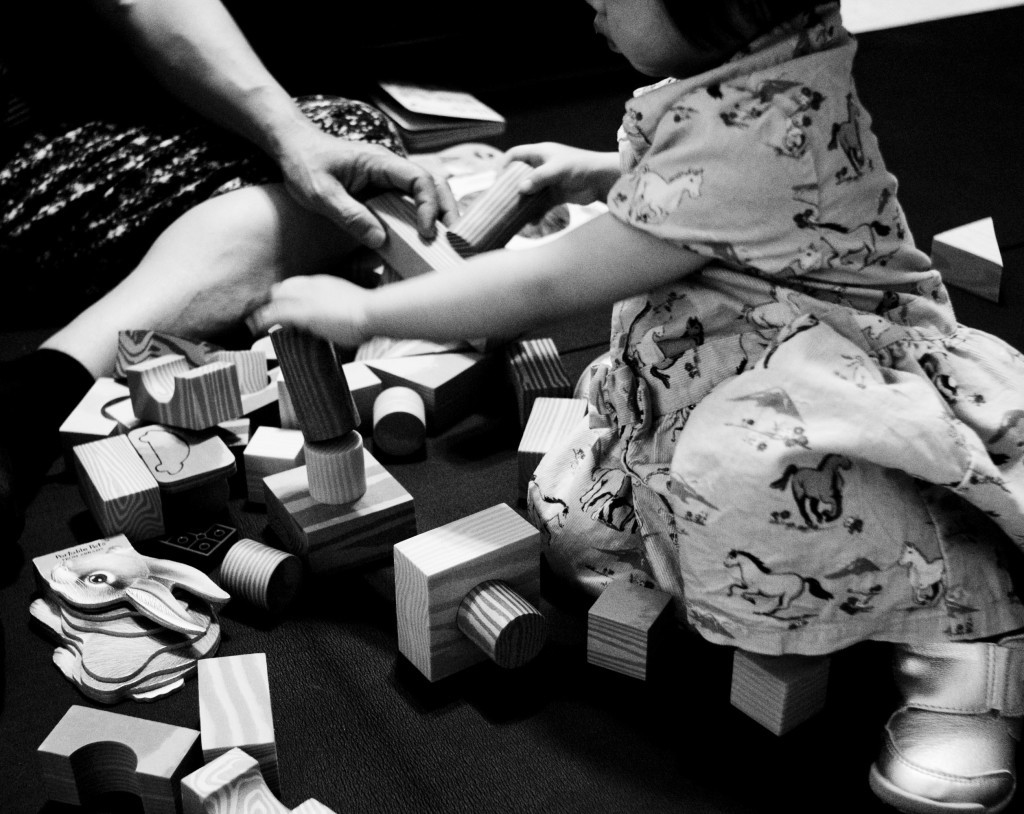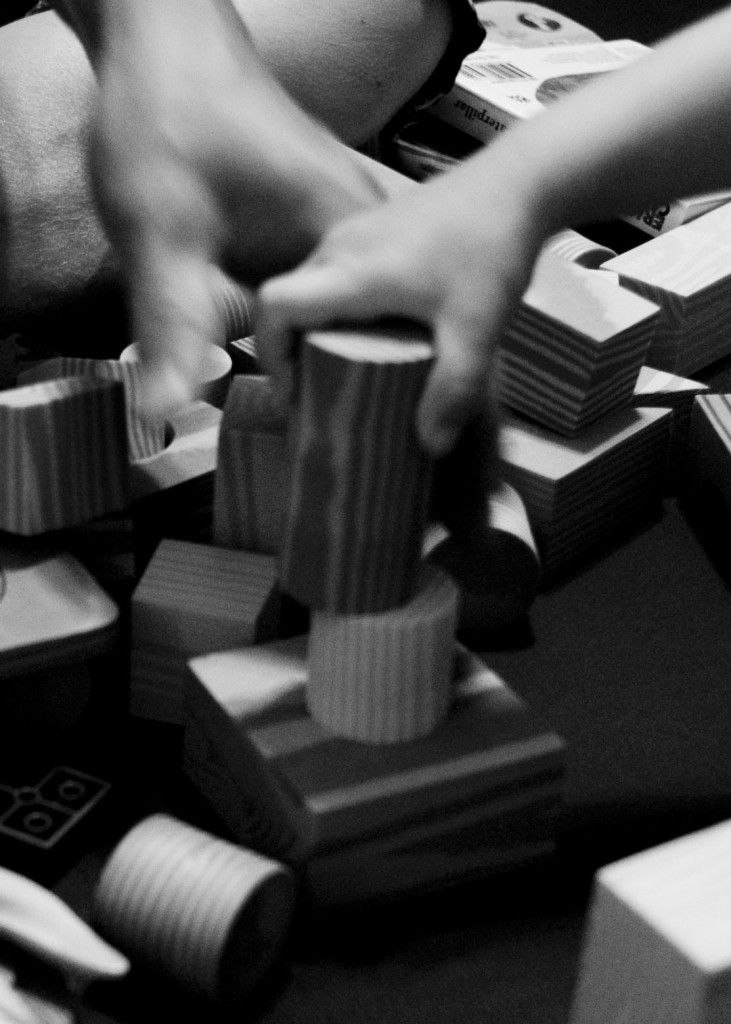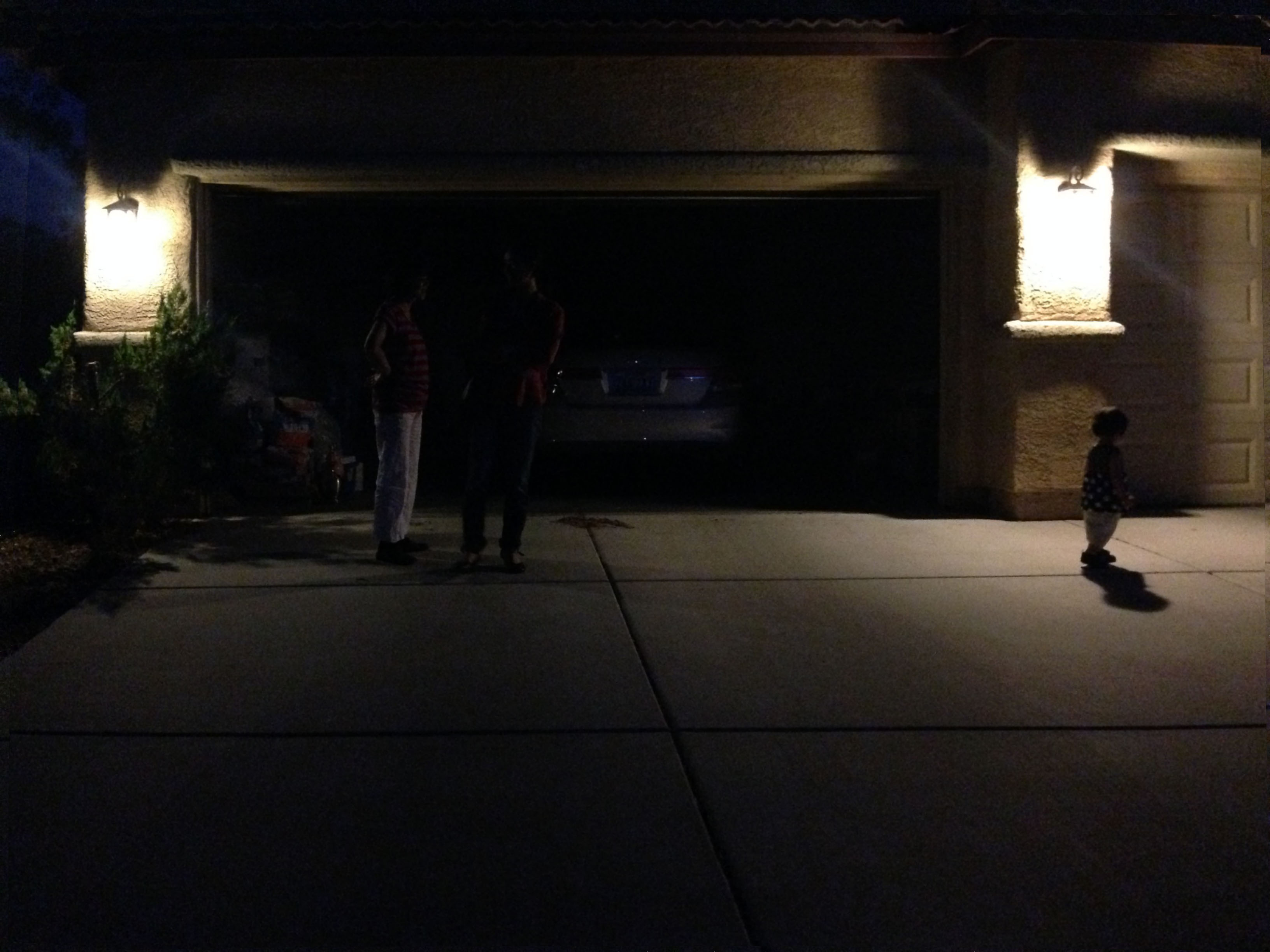With my recent return into photography, I’ve started listening to a lot of podcasts. Aside from the On Taking Pictures podcast that I gush about all the time, the other one that has caught my attention is Street Focus by Valerie Jardin on the TWiP network.
I really enjoyed her enthusiasm for this genre so this past Father’s Day we went out to the Bellagio to check out the conservatory and the water show and I snuck in some shots of strangers. I suspect this is about as ideal a condition for trying something like this out the first time. After all, the place was crawling with other tourists with cameras and I also had a wife and daughter for cover.
I have to say it was exhilarating. The search for a great photograph was primal, it was a hunt with my fear of strangers to spice up the adrenaline. I prefer to take candids with my daughter so I am already familiar with the shooting style and techniques that I like to use. But it is a totally different mindset shooting strangers, so supposing that I decide to develop the courage, I wouldn’t be surprised if this became the primary non-family aspect of my photography hobby. We’ll see where I take this.
I think in the future I will be a bit more circumspect with the photos I will post from such a session, but what the hell this is a first time so here’s six to check out.
In retrospect I think this was the weakest of the photos, even though I am including it here because this is what I posted on the Street Focus google+ community. It captures a cute moment with the couple taking the selfie, but it sits in a middle distance from the lens and the energy seems dissipated. That said, it did capture the moment and the mood of the day, and it was compelling enough this morning for me to pick this image for upload.
Talking about shooting fish in a barrel. Like in the Conservatory, it was really non-awkward to photograph strangers photographing something else. I’m certain the idea of people experiencing stuff mediated by a piece of electronics is an overplayed trope, but this is all new to me and having the subject totally engrossed on something else really made me more comfortable shooting them.
What I’m realizing in my own shooting is that I tend to like the photos I get when I am up close and personal to the subject. In this case, what kept it from being a great shot is the softness of the woman in the foreground. I may have to break down and go to the HI iso setting on my photo. I think I would have happily traded some noise for that extra stop and DOF.
This was upclose and personal only be happenstance. I was actually shooting the two young Subway employees having a conversation, but the timing was just perfect with the woman throwing me a glance just as the two men were giving each other some sort of hand shake. To be honest this might be the strongest stranger photo that I took.
And then on the opposite end of up close, there is the photo of the person within the environment. I had a nice shot of a man sitting on the couch, but it had a blurry vase of flowers in the foreground so the composition didn’t pan out. However this one worked out really nicely with my wife’s red shirt contrasted against the grey black background.
In all, a fruitful expedition on Father’s Day!
















